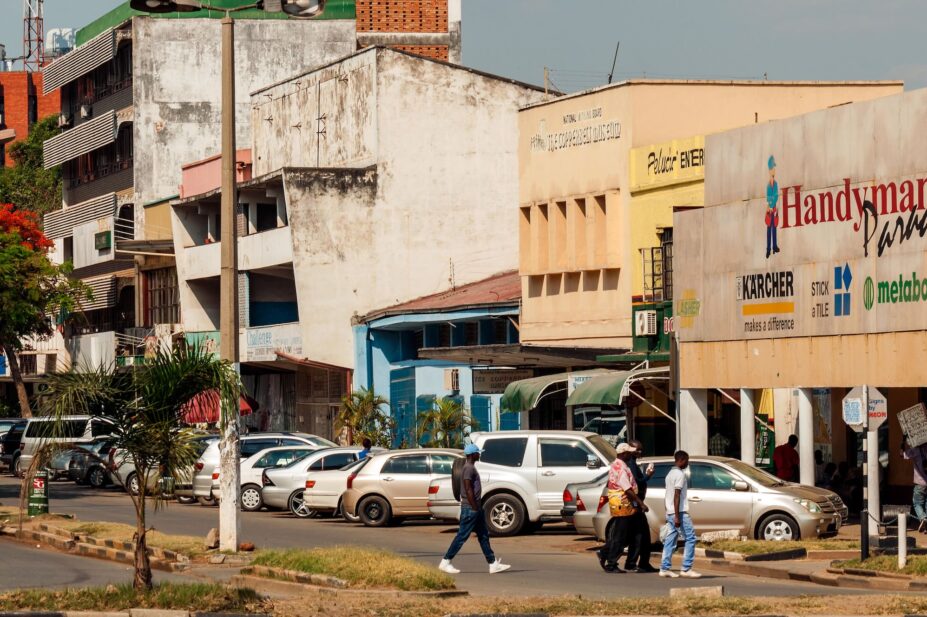
Thomas Cockrem / Alamy Stock Photo
Since 2023, Ndola Teaching Hospital, in Ndola, Zambia, has been in partnership with King’s Global Health Partnerships at King’s College London on an antimicrobial stewardship (AMS) project, aimed at strengthening our antimicrobial activities.
As Nisha Thakrar, senior clinical fellow at Mid and South Essex Integrated Care System (which is also involved in this project) has already described in The Pharmaceutical Journal, global health partnerships can strengthen capacity and create mutually beneficial learning about an area for development.
The collaboration between Ndola Teaching Hospital and King’s Global Health Partnerships included a two-week ‘observership’ at St George’s Hospital London in October 2023, whereby I observed processes and practices within the trust.
The visit involved attending therapeutic and AMS committee meetings, observing drug audits being conducted and seeing how sensitivity data are used to formulate antibiotic guidelines. I also learnt how a point prevalence study, which determines the antimicrobial use at the hospital, was conducted and I attended clinical ward rounds.
While I was there, I had an opportunity to visit the pharmacy department to see the services offered by Alex Quayle, lead pharmacist at the hospital trust. I saw how specialised pharmacy services for infectious diseases, paediatrics and haematology were provided.
The inventory was computerised with an electronic dispensing tool, while pharmacy had access to laboratory results and clinical notes, ensuring that an informed decision was made when dispensing drugs. Some of the tests viewed by pharmacy personnel from the laboratory included therapeutic levels that helped in dosing of drugs in kidney and liver-impaired patients.
Since visiting, the team at Ndola has tried to replicate the activities carried out by the AMS teams at St George’s
I had the privilege of joining a ward round in the infectious disease department conducted by Tihana Bicanic, professor of infectious diseases and mycology at St George’s University of London, where people with COVID-19, multidrug-resistant tuberculosis, gastrointestinal infection and pneumonia were. The ward had high infection prevention standards, with patients kept in separate cubicles. Some patients are placed in negative pressure rooms, as a means of infection control, to prevent infection from being directed at the hospital staff. Sanitisers, hand-washing facilities and protective consumables were placed at the entrance to each cubicle. This is slightly different from the process in Ndola, where we are also able to isolate infectious diseases such as COVID-19 or multidrug-resistant tuberculosis on admission, but do not yet have access to low-pressure rooms.
Following this, I attended a multidisciplinary team meeting where patients in the infectious disease ward were discussed in order to provide the best care. The team at St George’s also held an AMS quarterly meeting that I attended. At the meeting, antibiotic audit results were disseminated and showed that 11% of patients are not being put on oral antibiotics because they were not in stock.
Other elements of care that I observed included:
- A diabetic foot multidisciplinary team meeting attended by microbiology, endocrinology, orthopaedics and radiology;
- The preparation of a fungal infection list for patients in readiness for fungal infection stewardship at the hospital;
- An ICU round with the microbiologist consultant with emphasis microbiology results to guide the treatment of ICU patients;
- A hepatology pharmacy clinic, where we saw hepatitis B patients;
- The delivery of outpatient parenteral antimicrobial therapy services in people’s homes by a community nurse;
- The hospital’s microbiology unit to see how the process works from when blood samples are received to when the results are released.
Overall, I found that the antimicrobial stewardship programme at St George’s Hospital is highly advanced and, as such, is increasing the possibly of curbing drug-resistant infection strains. Since visiting, the team at Ndola has tried to replicate the activities carried out by the AMS teams at St George’s, including replicating the AMS ward rounds and the use of antibiogram to guide patient care. This has helped us to draw up an antibiotic use guideline. There have been challenges in introducing the new way of working among staff members. However, we are now a centre of excellence for antimicrobial stewardship in Zambia.
Tamica Mubanga, chief pharmacist at Ndola Teaching Hospital


